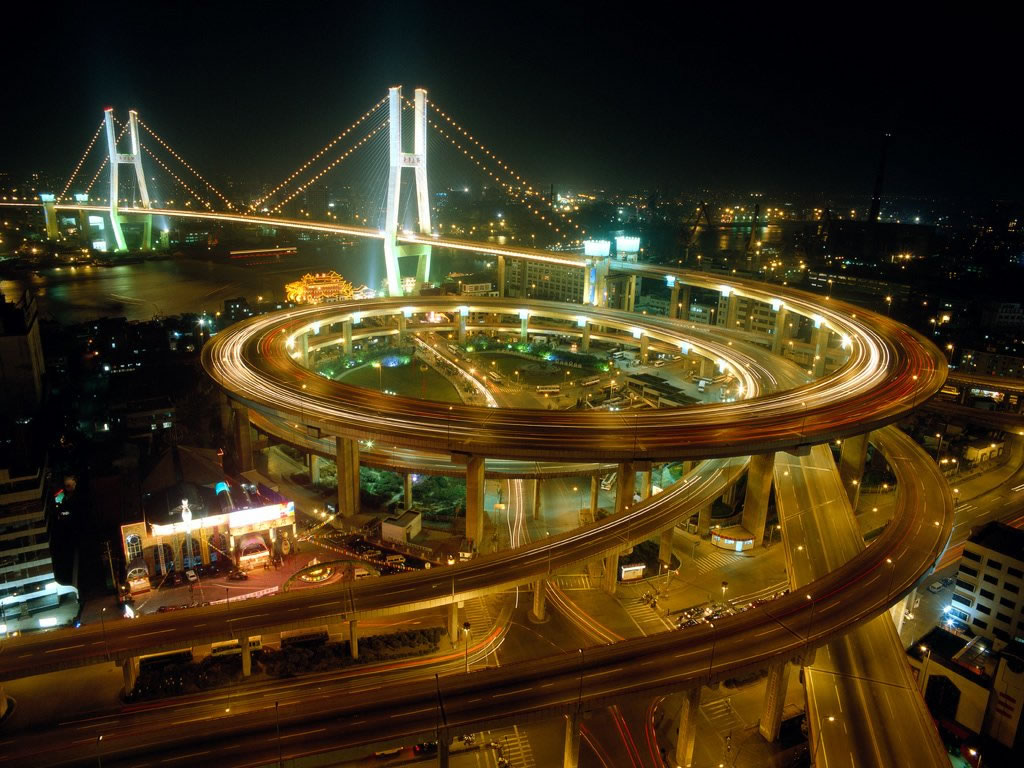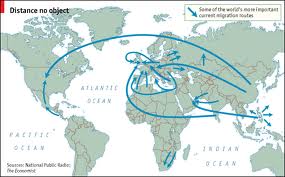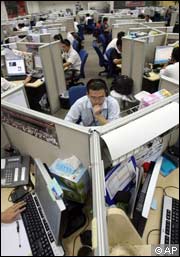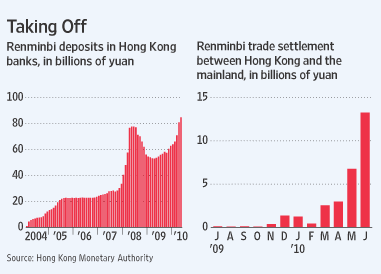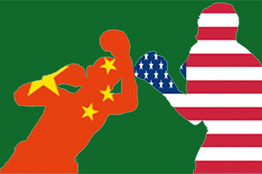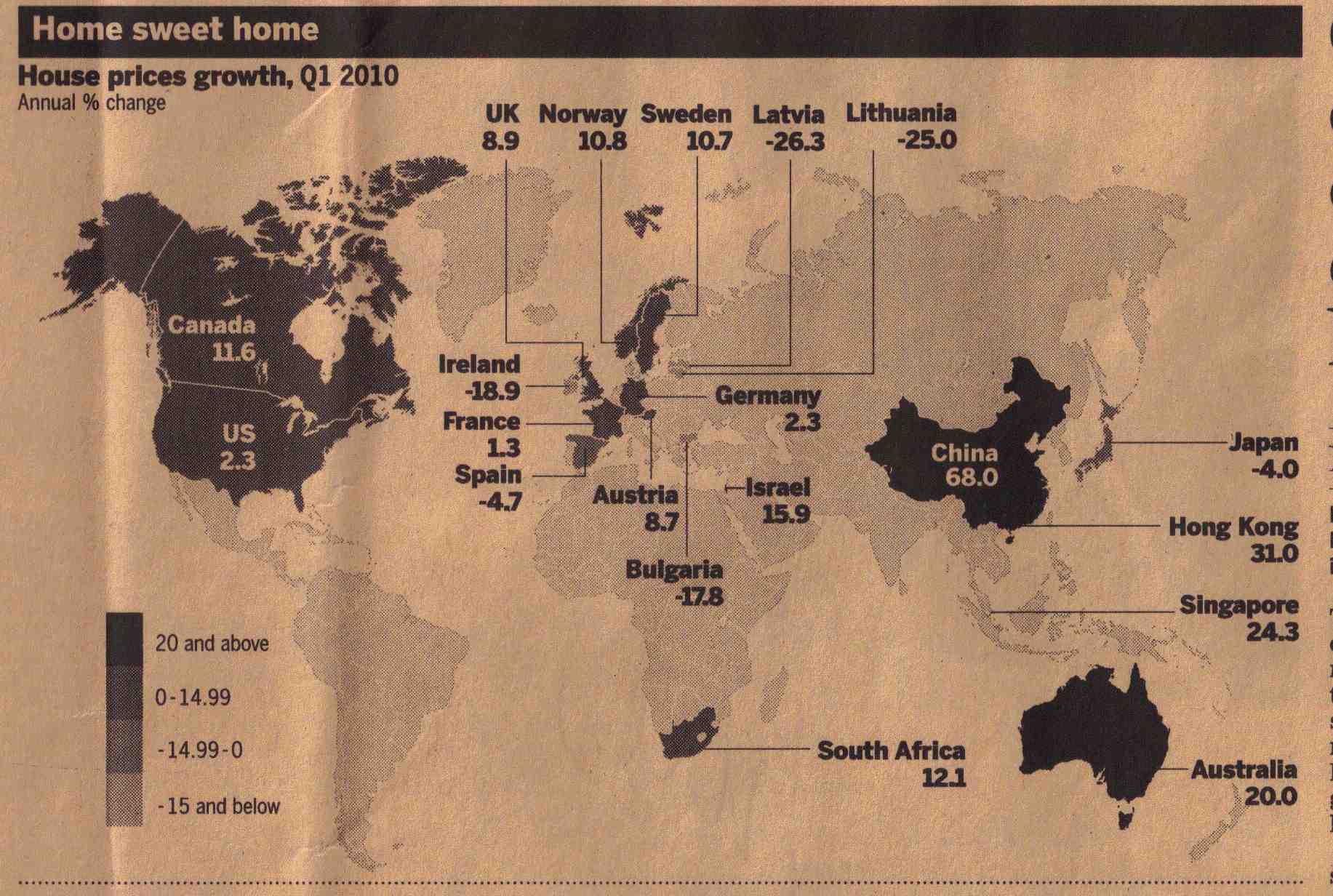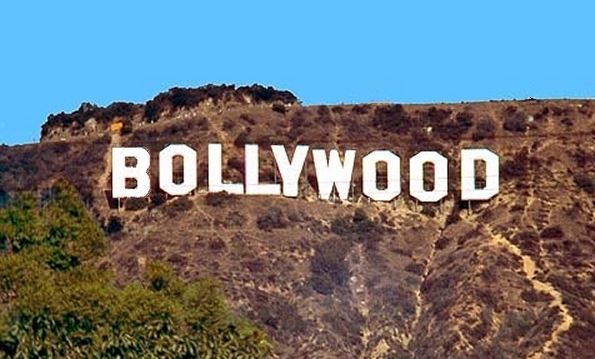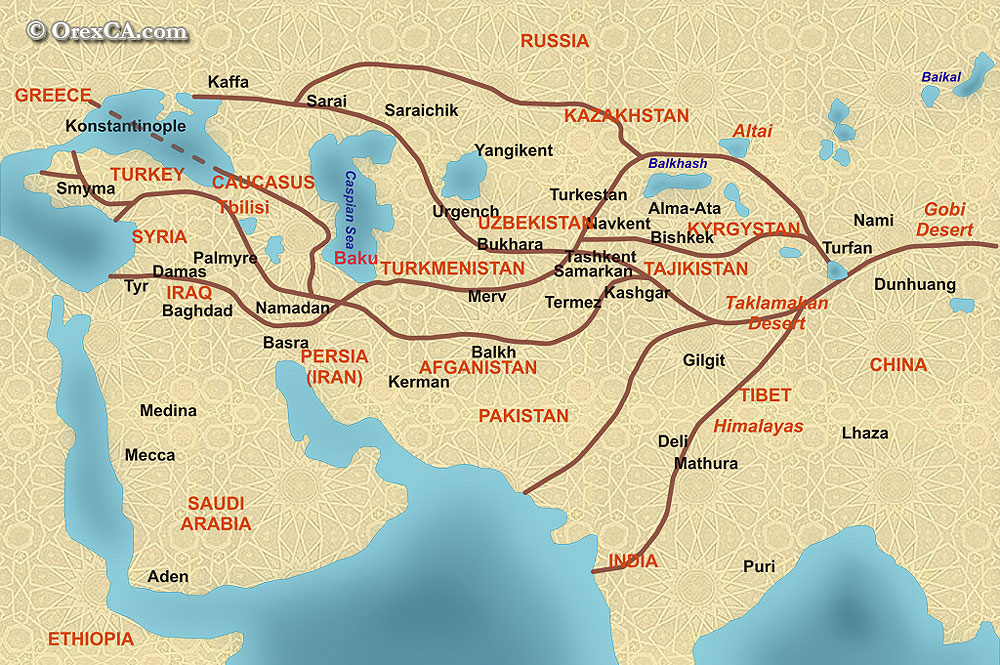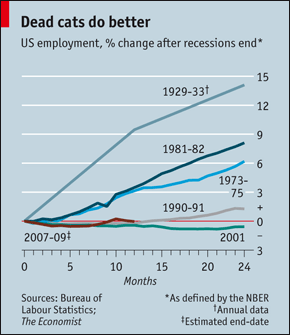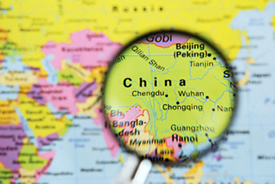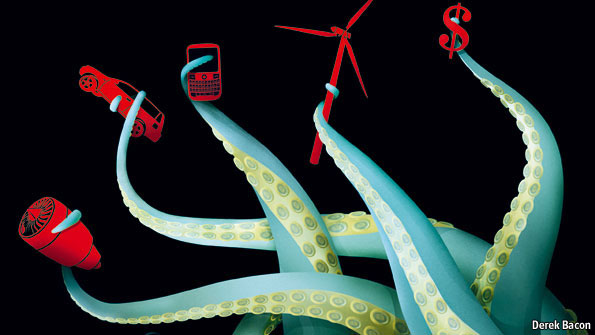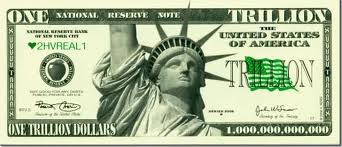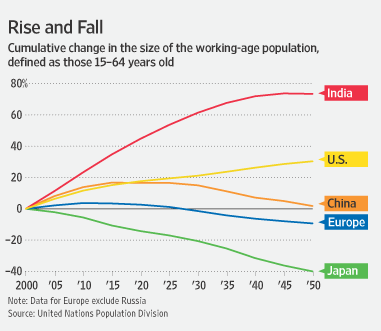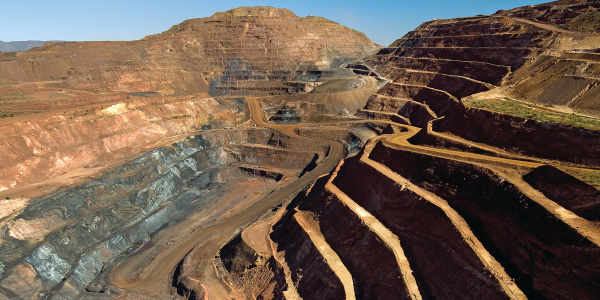
Provocative Bloomberg Businessweek piece entitled, "The deal is simple. Australia gets money, China gets Australia." Then the subtitle: "How's that supposed to make a country feel?"
The stunning factoid: China's exports, imports and investment annually add 3,400 Australian dollars' worth of value to each household in the country.
Chinese resource investment comes in three main forms: In the year leading up to July 2009, Australia saw A$42.4 billion in export demand, A$3 billion of direct investment in Australian companies, and more than A$4.9 billion in other project financing.
Naturally, the direct investment is the most politically charged. Australia's government, for example, wants no Chinese investment to total more than 49% of a company. 99% of China's investments to date have been in the resources industry.
China's hunger for Australian resources has aggravated the deepest divisions in Australian society over population size, immigration rates, taxation, and infrastructure. Bob Kinnaird, formerly of the Department of Immigration and Citizenship and now a private consultant, warns: "The huge growth of the Chinese presence in Australia, through the mining boom, students, tourism, and permanent migration, has been mismanaged to an incredible degree. The industries involved have urged extraordinary growth, but there hasn't been the infrastructure support to cope with it, and the result is that large numbers of Australians in the cities are worried that while the economic indicators are going one way, their real living standards feel like they are going the other."
Public opinion reflects this ambivalence. In new polling conducted by the Lowy Institute for International Policy, an Australian think tank, 73 percent of Australians say Chinese economic growth has been positive, but 57 percent say there is now too much Chinese investment. Economic power has brought fear, too: 46 percent believe China will pose a military threat within the next 20 years.
If China's eliciting this sort of response from an advanced, democratic country, you know that it'll be replicated elsewhere. The fundamental fear is the mismatch in political systems: if it was the US making such inroads, you'd see the same concerns but far less fear. There is simply a distinct fear of colonization with the Chinese, because they have an authoritarian government. It feels like a mismatch: "our companies" as counterparties to China's government--the real power behind every national company. I suppose similarly arranged authoritarian regimes in developing countries might not exhibit the same concerns, but even there, the scale issue must be intimidating--as in, China is so big and we're so small in comparison.
Likewise, if China just bought instead of exhibiting this strong desire to own--resources in the ground, stakes in the processing companies, and the transpo infrastructure in between those resource locations and Chinese markets--then maybe these transactions wouldn't elicit such fears. But China being China, I don't see either dynamic lessening whatsoever in the near term, meaning angst over China's penetration of resource providers' economies will only grow, and thus inevitably create backpressure of the most nationalistic sort.
I imagine Chinese nationalism will likewise rise as a result, but where will it go? China has neither the gear nor the political will to--as some Chinese nationalists fancifully put it--take what they need from the world. And, after a while, global sentiment is sure to turn against the apparent Chinese greed, even as it benefits resource providers. There will arise this sense of China looting the planet while exhibiting all manner of monopsonistic behaviors (a monopsony is where one buyer dominates a market). Eventually, China all by itself will come off not unlike the West on oil in the 1960s-1970s: producer backlashes will label it a destroyer of national wealth because it'll want to consume everything a country can provide it while paying rock-bottom prices.
So one to watch, this bilateral dynamic, simply because I think it'll provide an early glimpse of dynamics we'll see repeated--time and again--around the planet. China can mitigate such fears by becoming more democratic and giving off the vibe that's its government's behavior can be modified both from within and without, but I see the looming backpressure making such an evolution less likely in the near term, so things are likely to get very nasty before they get better. Increasingly, the world will grow to mistrust a China it does not feel it can influence its behavior, and that mistrust will close a lot of doors in China's face, making them all the more determined to own resources in the ground.
The Chinese seem to think they can finesse all this with their cash and promises of non-interference, but that seems decidedly naive. This is not a world exhibiting more trust in governments, as globalization's super-empowerment of individuals makes everybody more wary of turning their future over to bureaucrats--no matter where they hail from.
To me, this is but another reason why the "Chinese century" will be very short indeed. While the single-party state model is fine for catching up, it comes with inherent self-limitations for the far more intensive growth required for racing ahead. China, for all its green investments and fine talk, inevitably symbolizes an unsustainable global future far more than the United States allegedly does.
 Friday, September 10, 2010 at 12:06AM
Friday, September 10, 2010 at 12:06AM 









